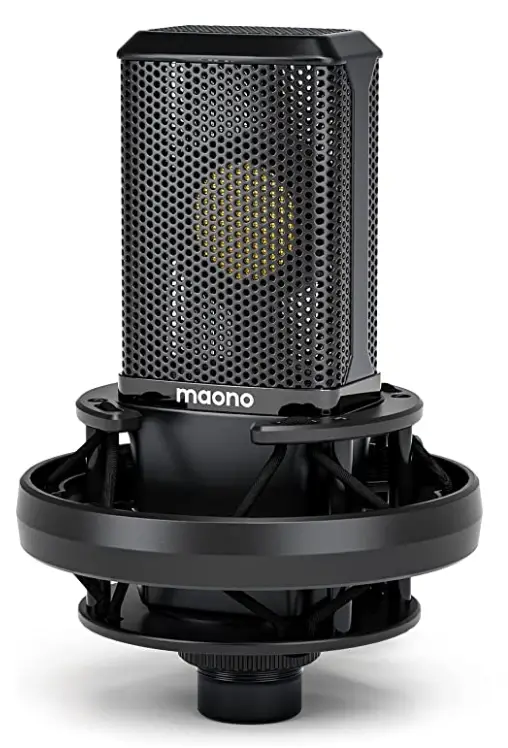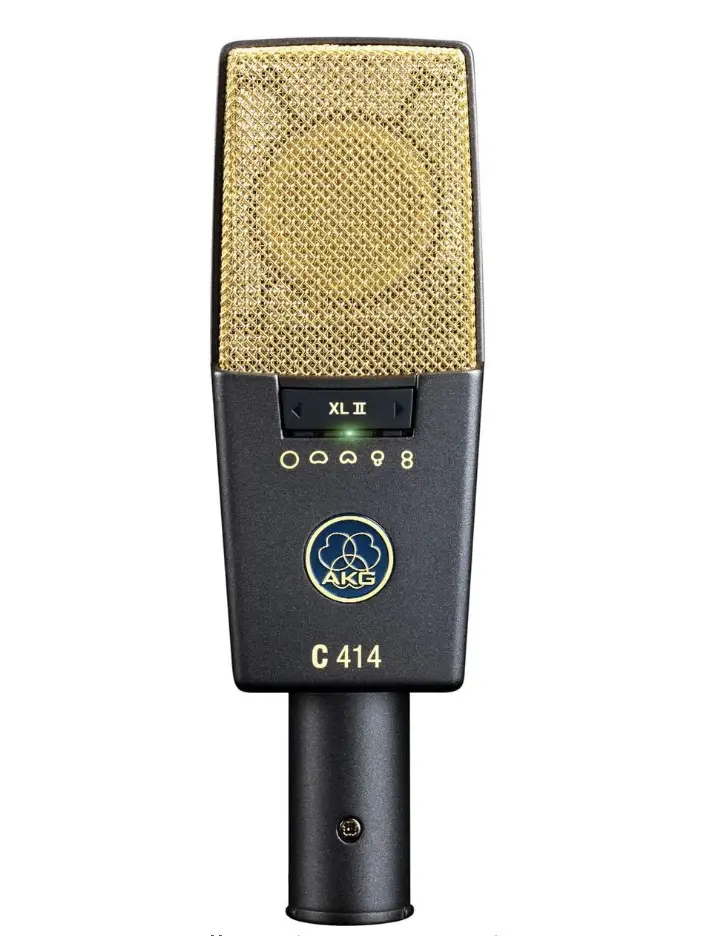The vocals are arguably the most important part of any song that includes lyrics, and the first step to getting great vocals is to record them the right way using the best microphone possible.
So, which is the best microphone for recording vocals? Condenser or Dynamic?
Condenser Microphones are better for recording vocals than dynamic microphones as they can pick up much more detail and are the most linear type of microphone. Condenser microphones are, therefore, ideal for the recording studio environment.
What makes one microphone better than another has to do with how they are constructed to function.
What Is A Microphone?
Now, you probably already know what a microphone is. It’s a thing that can record things.
But boiling things down further, we acknowledge that a microphone is a transducer. It converts one form of energy into another.
Microphones “transduce” or “convert” acoustic energy into electrical energy.
In that way, they are the inverse of speakers, which transduce electric energy into acoustic energy.
In other words, microphones simply capture sound waves and turn them into an electrical signal that a recording device or computer can understand.
I know, it sounds like magic, but trust me, microphones are real, and they do exist.
How Many Types Of Microphones Are There?
There are three different constructional types of microphones.
Ribbon microphones are not as common as condenser and dynamic mics, so I won't be covering them in this article.
What is a condenser mic?
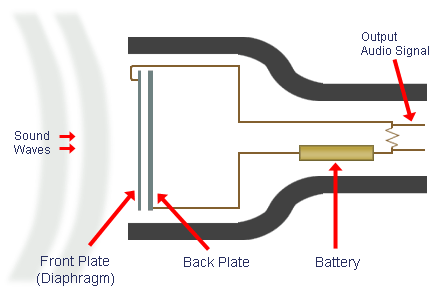
Condenser mics are constructed with a lightweight diaphragm which is suspended by a fixed plate. Sound waves cause pressure against the diaphragm, which causes it to move.
Because of the thin diaphragm, condenser mics are used to pick up delicate sounds, but are also more fragile than Dynamic mics.
This is why a lot of the more expensive condenser mics will actually come with a "pad" switch, which allows you cut the db level of a signal entering the mic and protect it from damage.
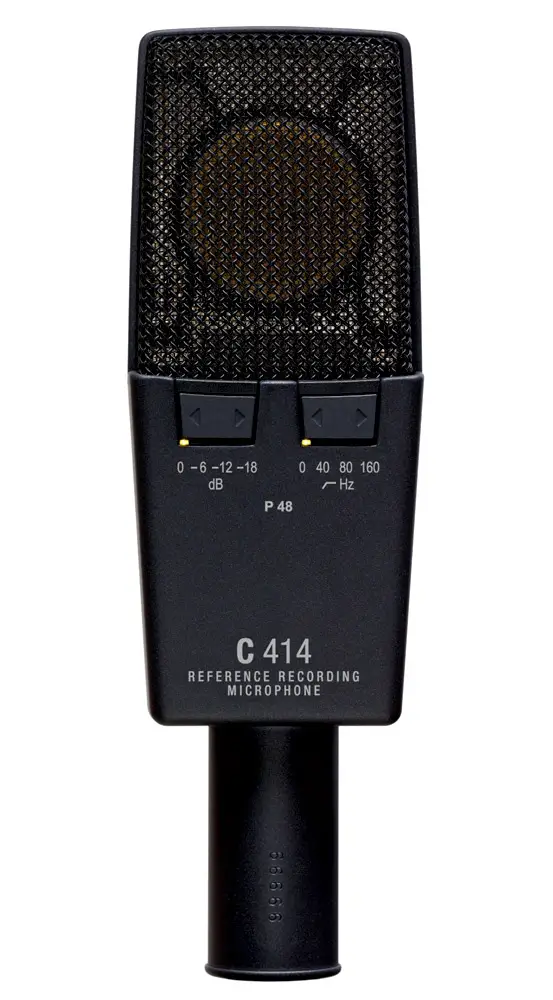
An AKG C414 condenser microphone with includes the ability to "pad" a signal by -6, -12, and -18 dB in order to protect itself from loud signals.
Condenser microphones are also not self-powered, so they will need a power source to function, specifically what is known as 48 volt "phantom power".
What is Phantom Power?
Phantom power is the magical force that is generated when you sing to talking animals and paint with all the colors of the wind (but wait, isn't wind invisible?)
Just kidding. Phantom power simply refers to the small amount of power needed to make the diaphragm move, which is included on most audio interfaces or pre-amps.
Here is where the phantom power switch on my interface:
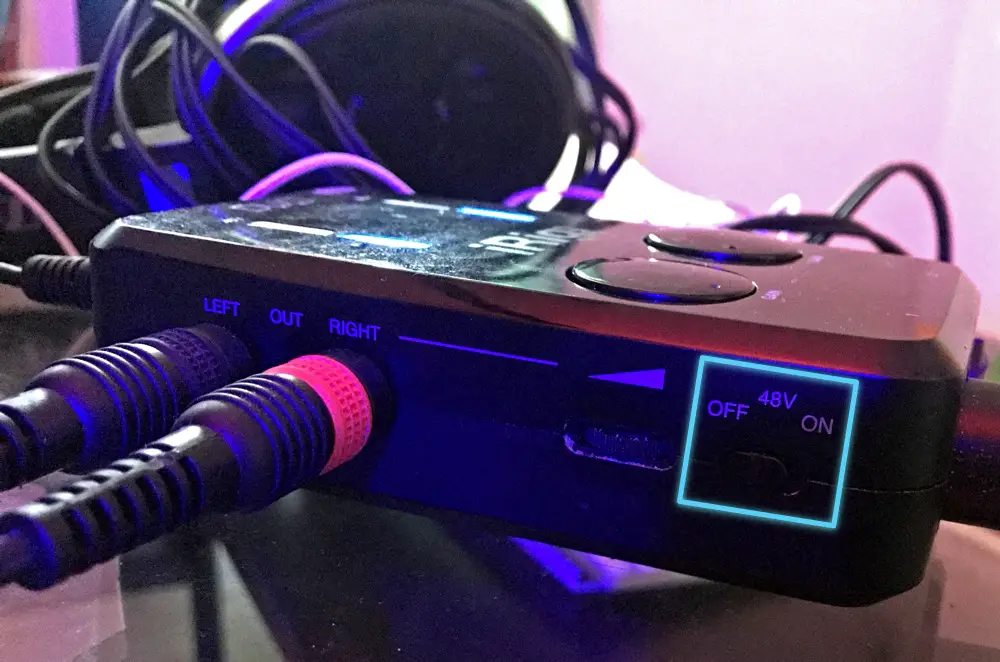
Occasionally, I'll forget to switch this on and scratch my head for a minute or two trying to figure out why my microphone wont freaking record!
And then I realize it's because I was a dummy and didn't switch on phantom power.
Why condenser mics are good for Recording vocals
Condenser mics are great for recording vocals because they will pick up a lot more of the detail of a vocal performance.
This will allow for a fuller, more natural sounding vocal to work with when you go to mix. You'll be able to hear all of the subtitles in a vocal, which means it will sound more like a real person singing, rather than a recording.
Pros and Cons of Condenser Mics
Pros
Cons
Best Beginner Condenser Mic
If you're wanting to record professional quality vocals, then you need a large diaphragm condenser microphone, and it's hard to beat the quality you get out of the MXL 770 for the low price.
Best Pro Condenser Mic For Vocals
This goes for all mics, but there really isn't one BEST mic for vocals because everyone's voice sounds different, and therefore, different mics capture different voices differently.
That said, when I recorded bands as part of my education at Unity Gain Recording Institute, the vocal mic that we turned to most often was the AKG C414.
Sonic character of the famous AKG C12 delivers astounding sound quality for lead vocals and solo instruments
Nine selectable polar patterns for the perfect setting for every application
Three attenuation levels (-6/-12/-18dB) for close-up recording or high-output sources of up to 158dB SPL
Three switchable different bass-cut filters to reduce wind noise, stage vibration or proximity effect
What is a dynamic mic?
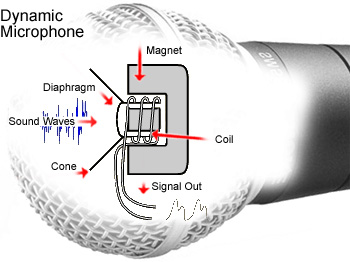
Dynamic microphones are microphones that convert sound into an electrical signal by means of electromagnetism.
Sound is captured when a sound waves hits a diaphragm causing it to move.
The diaphragm is attached to a metal coil which is suspended between two magnets. When the diaphragm moves, the boil also moves up and down, producing a current that mimics that of the sound wave.
Dynamic microphones are great because they can withstand very loud (high sound pressure level) sounds. They are also just more physically durable, so if you drop one during a live show, it probably won't break.
It's for this very reason that you'll see dynamic microphones used during live performances, or for recording very loud sounds.
Pros and Cons of Dynamic Mics
Pros
Cons
Can you use a dynamic mic to record vocals?
You can certainly use a dynamic mic to record vocals, but they're going to lose some of the detail that you get with a condenser mic. So just keep that in mind when recording.
As always, it's the entire chain of events that go into creating a creating a great-sounding song.
You can't just have the right equipment, as a great quality vocal or recording also depends on what room you recorded in, mic placement, the use of a pop-filter, vocal performance, and so much more.
And that's just on the recording end, and not even talking about mixing.
But long story short, yes, you can certainly record vocals on a dynamic mic, but you're going to have the best odds at a great sounding performance by recording on a condenser mic.
Do you need a dynamic or a condenser microphone?
This depends on what you want to record. You might need both!
If you're planning on recording guitar amps, or drums, or very loud sounds, you might want to get a dynamic microphone for your recording arsenal.
But if you're just going to be recording vocals, then you can get away with just having a condenser microphone.
Conclusion:
In conclusion, if you're wanting to record vocals, you'll want to use a condenser microphone.
If you're wanting a good beginner condenser microphone to get started, then check out this one here.
Finish More Tracks, Faster
Now that you've gotten the mic situation straightened out, it's time to start cranking out the new music!
What would it be like if you could consistently finish radio-ready songs, and complete them faster without having to spend months or even weeks on end working on the same songs over and over?
If that sounds good, then grab my free Rapid Song-Finishing Checklist below.
You'll discover a proven step-by-step system for completing professional-sounding songs.
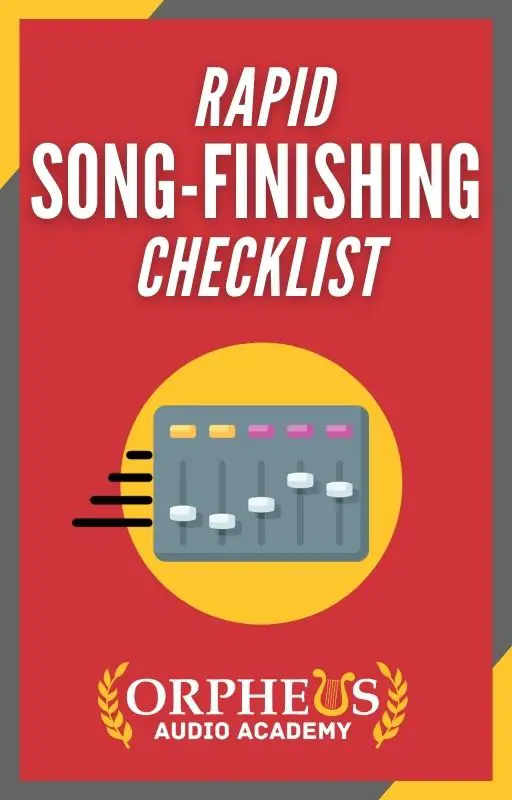
Create Better Songs, Faster
Click below to download my free song-finishing checklist to help you create radio-ready songs without taking months to complete them.
This will be especially beneficial if you find yourself working on songs for hours on end only to look back and wonder if you actually made your track any better.
I hope you got value from this post on, Dynamic vs. Condenser Mic: Which Is Better For Vocals.
If so, feel free to share it, and let me know in the comments below...


